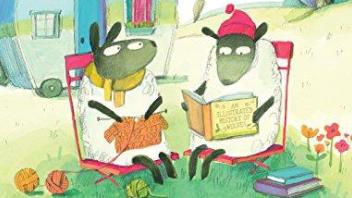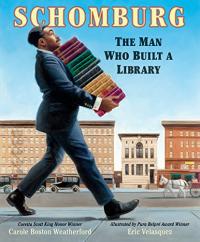
Who was Arturo Alfonso Schomburg? He was an Afro-Puerto Rican man whose thirst for knowledge about his roots led him to collect and manage what would become a great library in New York City. Fluid language informs as handsome, realistic paintings illuminate the highlights of Schomburg’s life and contributions. A timeline and bibliography may inspire other young researchers and booklovers.
Book lists this appears on
Themed Booklist
Holiday Buying Guide 2017
Other books by this author
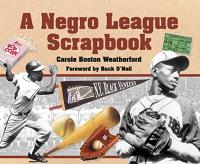
This brief, often poetic, and informative introduction to the Negro Leagues uses period photographs to enhance the information. The period in American history is one of segregation and sadness but also of great joy and achievement.
A Negro League Scrapbook
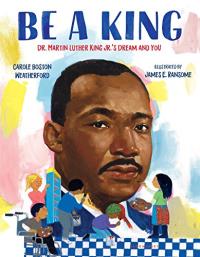
Young readers are called to action, because it is possible that “You can be a King” in small everyday ways. Brief, recognizable scenes and sophisticated ideas are realistically interspersed with simpler, child-like classroom goings-on to bring the concept closer to familiar experiences. The result is a lyrical book just right to launch discussions.
Be a King: Dr. Martin Luther King Jr.’s Dream and You
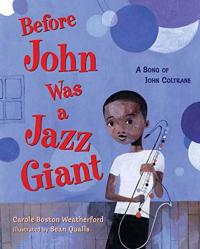
John’s music began when he listened to the music in his childhood. Semi-abstract illustrations vivify sound-filled poetry, together introducing a boy who would grow up to become the great John Coltrane.
Before John Was a Jazz Giant: A Song of John Coltrane
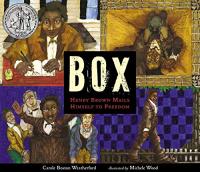
Henry Brown’s unique method to escape from slavery is presented in lyrical language and rich, multi-layered mixed media illustration. A box took Henry from slavery to freedom after his entire family had been “sold south.” Further resources are included.
Box: Henry Brown Mails Himself to Freedom
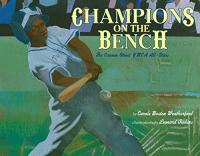
Champions on the Bench
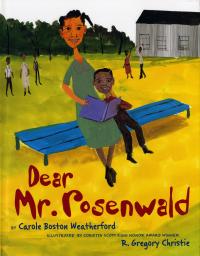
A 10 year old girl narrates this fictionalized story, based on real events and people, of how her rural southern town builds a new school for African American children with the help of Julius Rosenwald (then president of Sears Roebuck).
Dear Mr. Rosenwald

A joyous picture book about an intergenerational Black family cooking a delicious feast and appreciating their quality time together. When it comes to a family feast, it’s all hands on deck! Big Ma and Pops have been up early in anticipation of everyone’s arrival. Aunts, uncles, and cousins gather from all over to help prepare their big meal. Clanging pots, chopping vegetables, sharing recipes, and swiping little treats are part of the fun! After the cooking is done, all of the relatives come together to pray, eat, and enjoy their special moment as a family.
Family Feast!
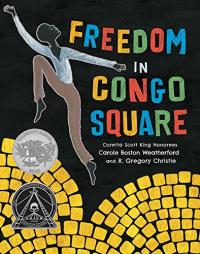
Join the rhythmic countdown to Sunday afternoon, the one time when enslaved Africans in 19th century Louisiana could relax in what became known as New Orleans’ Congo Square. Vibrant paintings, reminiscent of Jacob Lawrence, further enliven the portrait of people as they toiled daily, culminating on Sunday. An introduction provides historical insight and perspective of this little known part of American history.
Freedom in Congo Square
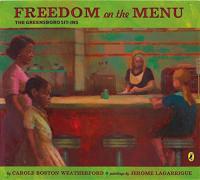
A girl and her mom want to have a sweet treat on a hot day but cannot sit at the soda fountain simply because they are “colored.” Impressionistic paintings soften the harshness of the story of segregation in the South during a turbulent time.
Freedom on the Menu: The Greensboro Sit-Ins
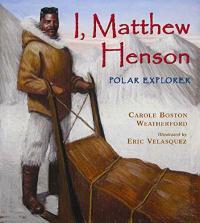
I, Matthew Henson
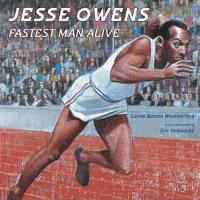
Jesse Owens: Fastest Man Alive

Cassie has moved from the big city back to her family’s Texas hometown. Joining her parents in a community celebration of Juneteenth, Cassie learns about the day when slaves in Texas were freed some two years after the Emancipation Proclamation and wonders why the news took so long to reach them. She is introduced to Juneteenth traditions and while making red velvet cake and witnessing the joy of the locals downtown, learning Juneteenth’s history helps her to realize that she is, indeed, home.
Juneteenth Jamboree
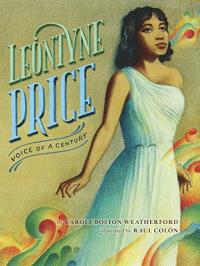
Born in the Mississippi Delta in 1927, the always musically gifted Mary Violet Leontyne Price would grow up to be the first African American to star at LaScala in Italy. Evocative illustrations swirl with poetic text to bring this star to life. Leontyne was preceded and may have been inspired by Marian Anderson, so this book pairs well with When Marian Sang: The True Recital of Marian Anderson (opens in a new window).
Leontyne Price: Voice of a Century
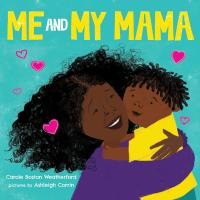
A celebration of family love and Black joy, told through gentle rhyming text and colorful illustrations. “The sun is calling us outside. Mama cheers me down the slide! We wish on puffs and sift through sand. We hike together hand in hand.” This book showcases the special role Mama plays in children’s lives and explores the many ways love can be shown!
Me and My Mama
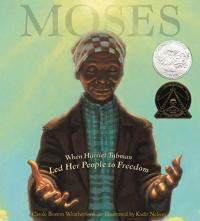
Dramatic full color illustrations (which won a Caldecott Honor) and splendid, poetic language depict the bravery of Harriet Tubman, who escaped slavery on a Maryland plantation only to return again and again to help other slaves escape. Deeply religious, Harriet became known as the Moses of her people and a conductor on the Underground Railroad.
Moses: When Harriet Tubman Led Her People to Freedom
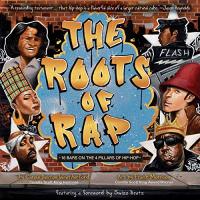
So you think rap is modern? Well, it is, but its genesis began long ago! Discover where rap started in this rhythmic, clearly sourced, and stunningly illustrated poetic introduction to it.
The Roots of Rap: 16 Bars on the 4 Pillars of Hip-Hop
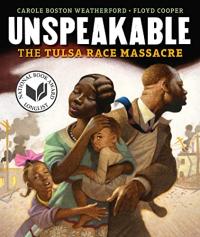
Tulsa, Oklahoma, once housed an area called Black Wall Street. Successful African Americans owned and operated business in Greenwood, a section of the city. Without downplaying the horror, author and illustrator combine talents to present this brutal historical event in words and image. Additional resources are included.
Unspeakable: The Tulsa Race Massacre
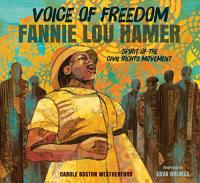
Stirring poems and vibrant collage illustrations combine to celebrate the life of Fannie Lou Hamer, a champion of the Civil Rights and voting rights movements during the 1950s through the 1970s. Born in the Mississippi delta, the youngest of 20 children, Hamer had to drop out of school after sixth grade to work in the cotton fields before she became a powerful voice for her people. The book vividly brings to life Hamer’s legacy with a message of hope, determination, and strength.
Voice of Freedom: Fannie Lou Hamer
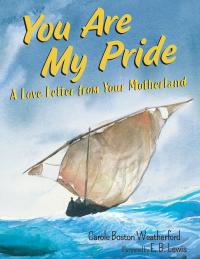
Written in the voice of Mother Africa, who speaks to her children — human beings — this picture book expresses the love between mother and child as it celebrates humanity’s common roots. Told in beautifully evocative free verse, with dreamlike watercolors that sharpen as they move closer to contemporary life. Includes back matter with nonfiction information about human evolution and about the migration of Homo sapiens from Africa around the globe.
